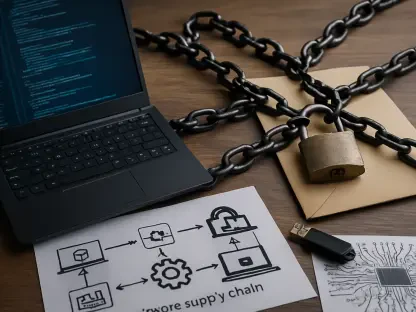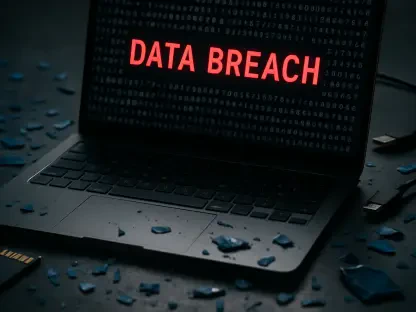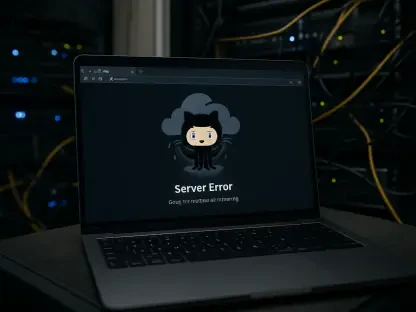The Olympic Games Paris 2024, a landmark event expected to attract millions of visitors and generate significant global attention, faces substantial cybersecurity threats. Among the most concerning are potential cyberattacks from Russian hacker groups, driven by geopolitical tensions and previous disputes in the sports realm. As nations and sports enthusiasts gear up for this grand event, the digital landscape is witnessing a surge in malicious activities targeting its infrastructure. Particularly alarming is the focus on cyberattacks likely to be orchestrated by Russian hacker groups, motivated by geopolitical strife and a history of conflicts in the sporting world. This article will delve into the multifaceted cyber threats looming over the Olympics and evaluate their potential impact.
Geopolitical Context and Cyber Threats
France’s condemnation of Russia over the Ukraine conflict and the banning of Russian athletes from international competitions due to doping have heightened tensions. These geopolitical frictions have set the stage for potential retaliatory cyberattacks against the Olympic Games Paris 2024. Russian state-sponsored and independent hacker groups, motivated by both political and nationalistic fervor, may seek to disrupt the event through data breaches, phishing scams, and Distributed Denial of Service (DDoS) attacks. The emphasis here is not just on causing inconvenience, but on sending a clear message to the international community.One prominent group, the People’s Cyber Army (PCA), has actively called for cyberattacks against France. On their Telegram channel, PCA has mocked the situation with a fake Charlie Hebdo cover, signaling their intent to launch DDoS attacks as their form of ‘Olympic participation.’ This group’s call to arms suggests a coordinated effort involving other groups like NoName057(16) and RCAT, aiming to compromise the Olympic event’s infrastructure and undermine its public image. The combined efforts of these organizations are intended to create a disruptive force that could jeopardize event operations and taint France’s efforts to host a successful Olympics.
The Threat of Mobile Application Exploitation
As millions of fans and tourists prepare to attend the Olympics, mobile applications associated with the event have become prime targets for cybercriminals. These apps, designed for ticketing, navigation, and event updates, hold valuable user data that hackers can exploit. Unauthorized access to these accounts could disrupt operations, result in financial fraud, and cause a significant public relations disaster. The mass use of mobile apps for the Olympics magnifies the potential impact of any security breaches, turning every smartphone into a potential entry point for cyber threats.The ZeroFox study found thousands of compromised credentials linked to official Olympic domains, revealing the extent of vulnerabilities. These credentials, available on a private Telegram channel, underscore the ease with which hackers can access sensitive information. This not only jeopardizes individual users but also poses a threat to the event’s overall cybersecurity framework. Personal data such as payment information, identity details, and location services are at risk, making it essential for users to exercise caution and take protective measures when using these mobile applications.
Dark Web Activities and Cybercrime Marketplaces
The dark web remains a thriving marketplace for cybercriminals looking to exploit major events like the Olympics. Recently, an anonymous user named “dank31337” posted on a Russian-language forum, offering $5,000 for initial access and assets targeting the Olympics. This willingness to pay substantial amounts highlights the seriousness and potential scale of the planned cyberattacks. These dark web activities indicate a high level of organization and investment from cybercriminals, who see the Olympics as an opportunity to reap substantial rewards.Such activities on the dark web indicate that cybercriminals are prepared to invest heavily in acquiring tools and information necessary for sophisticated attacks. These could range from credential theft and phishing scams to more severe disruptions that threaten the integrity of the Olympic Games. The presence of organized groups willing to trade and sell compromised data adds another layer of complexity to the cybersecurity challenges faced by Paris 2024. Continuous monitoring and intervention efforts are necessary to preempt these threats and mitigate potential damage.
Phishing Attempts Against Volunteers
Volunteers play a crucial role in the success of the Olympic Games, but they too are targets for cybercriminals. The study discovered phishing emails aimed at volunteers, attempting to retrieve personal information and credentials. For instance, a questionable email from volontaires@info-jeux2024.paris[.]fr raised suspicions among volunteers due to its deviation from official channels of communication. Such attacks exploit the trust and enthusiasm of volunteers, who are typically less guarded and more likely to engage with seemingly official correspondence.These phishing attempts can have far-reaching consequences, potentially allowing attackers to gain unauthorized access to systems and sensitive volunteer data. This not only endangers individual volunteers but also risks compromising critical aspects of the event’s operations. Phishing scams targeting volunteers could result in the theft of valuable credentials, which in turn could be used to launch broader attacks against the Olympic infrastructure. Ensuring volunteers are adequately briefed on recognizing and reporting phishing attempts is vital to maintaining the security of the event.
Exposed Credentials and Potential Exploitation
ZeroFox identified numerous credentials linked to official Olympic and Paris 2024 domains on various public repositories and dark web marketplaces. These credentials could be exploited by attackers to gain unauthorized access to systems, posing a significant threat to the event’s cybersecurity. The presence of over 1,700 entries related to paris2024[.]org on the dark web underscores the scale of the potential risk. Such widespread availability of sensitive information highlights the urgent need for robust security measures to safeguard these credentials.Hackers can leverage these exposed credentials to mimic legitimate user sessions, leading to unauthorized viewing, transfer, or resale of e-tickets. This could result in widespread chaos, financial losses, and a substantial hit to the event’s reputation. The exploitation of these credentials may allow cybercriminals to infiltrate Olympic systems, disrupting operations and causing confusion among attendees. Proactive steps must be taken to secure login information and monitor for any signs of credential misuse.
Recommendations for Cyber Safety
As millions of fans and tourists gear up for the Olympics, mobile apps associated with the event have become prime targets for cybercriminals. These apps, designed for ticketing, navigation, and event updates, contain valuable user data that hackers aim to exploit. Unauthorized access can disrupt operations, lead to financial fraud, and create significant public relations issues. The widespread use of mobile apps for the Olympics amplifies the potential impact of any security breaches, making every smartphone a potential entry point for cyber threats.A ZeroFox study found thousands of compromised credentials linked to official Olympic domains, highlighting the vulnerabilities. These credentials, found on a private Telegram channel, show how easily hackers can access sensitive information. This jeopardizes not only individual users but also the event’s overall cybersecurity framework. Personal data such as payment information, identity details, and location services are at risk. Therefore, users must exercise caution and adopt protective measures when using these mobile applications to ensure their safety and data security.









